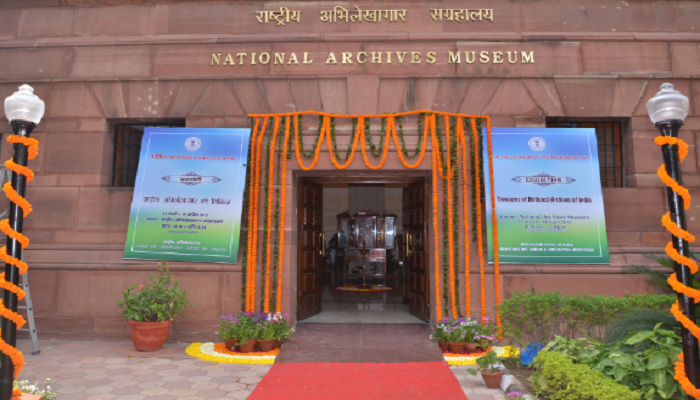The Second Book reading session of ‘Archives Reads’ was organised by National Archives of India yesterday with Author & Prof Deepak Kumar, former Professor, JNU reading from his latest publication “Trishanku Nation – Memory, Self and Society in Contemporary India”.
Speaking on the occasion, Director General, National Archives of India (NAI), Pritam Singh, said that the rich archives available with NAI is a treat for students, researchers, historians and authors. He said this book reading series would help inculcate archival awareness among the masses, to bring prominent historians closer to the young readers and to showcase the vast treasure of archives available with National Archives of India for research and reference purposes.
The author, Prof Deepak Kumar, mentioned that around 4500 files on Home affairs, Polity, meteorology and various other branches were referred by him from the National Archives over past 15 years which has helped him publish many books, significant being “Science and Raj”. The author was immensely proud of the institution of National Archives of India with its exceptionally rich archives indexes in various fields. He stated that ‘National Archives of India serves as the Memory of the Nation’. He also appealed that NAI should consider preserving even private papers of historically significant organisations in the country.
Fukushima on mind, Bhutan gives a thoughtful gift to Japan
The book- “Trishanku Nation – Memory, Self and Society in Contemporary India” is built on a narrative on the state of contemporary India. The Trishanku Nation gives an account of a country marked by its contradictions and seamlessly combines everyday social history with academic insights. Based on memory, both historical and personal it examine issues of casts, religion, communalism, governance, corruption, education, science, culture, etc. as seen in the past five decades.
Archives reads book reading series was launched on 23rd February 2018 to inculcate archival awareness among the masses and bring prominent historians/scholars closer to the young scientists/citizens.

